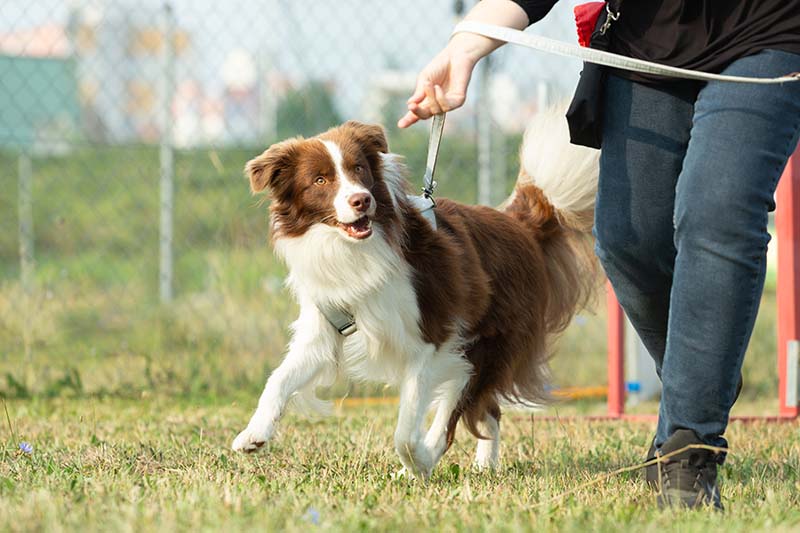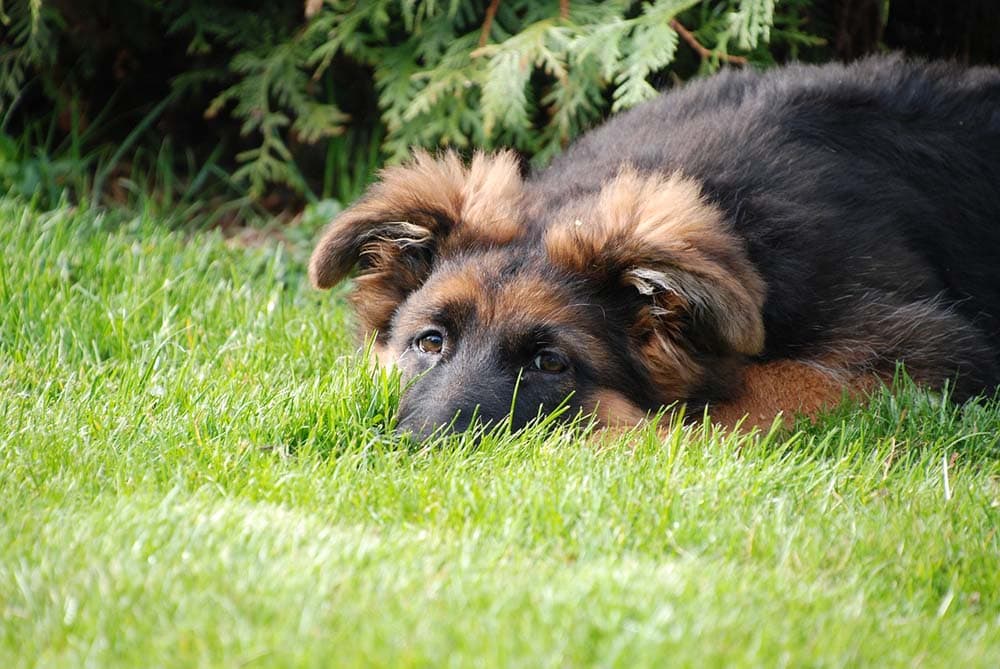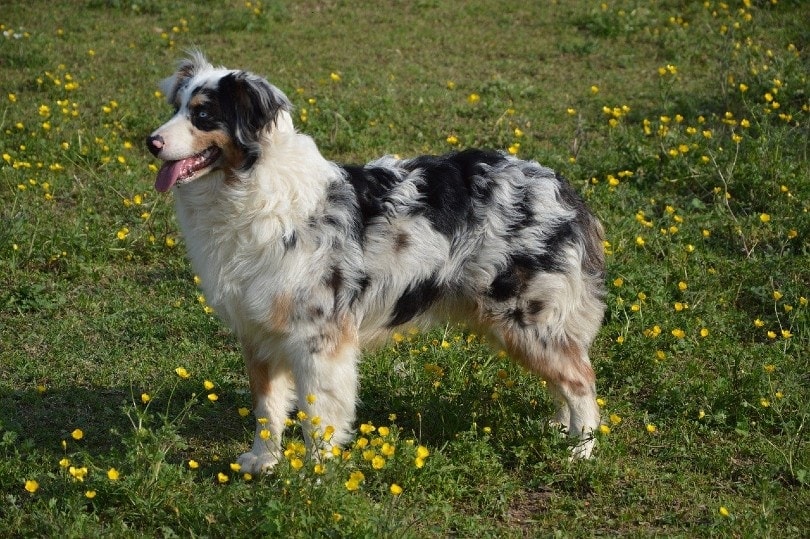Why Do German Shepherds Pant So Much? 8 Likely Reasons

Updated on
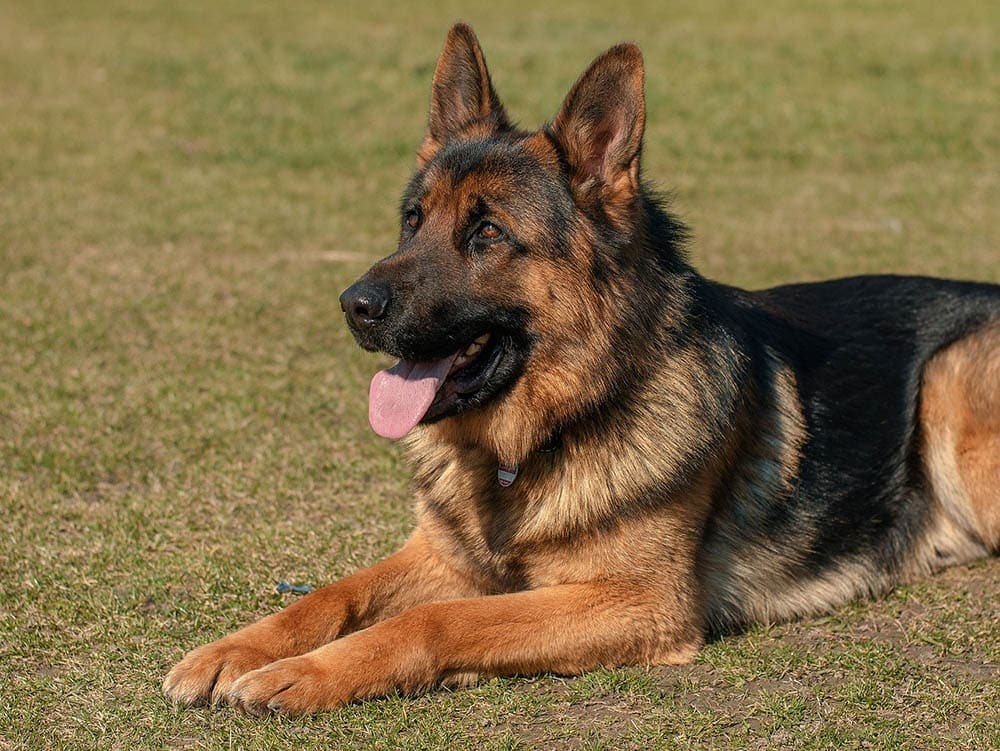
If you own a German Shepherd, you’ve likely noticed that they pant a lot. In fact, it might seem like they pant too much. Fear not! German Shepherds do pant more than other breeds, but it’s a perfectly acceptable amount for them.
Why does your German Shepherd pant so much though? As you know, dogs don’t sweat like we do. They only have a few sweat glands that aren’t very sufficient. Instead, dogs pant to cool off — a process known as thermoregulation. As a large dog with a thick coat, your German Shepherd will have a more difficult time cooling down and will need to pant more. But there are other reasons too.
The 8 Likely Causes of German Shepherd Panting
Most panting will be your German Shepherd trying to cool down, but there are sometimes other reasons they pant a lot. These include anxiety, being overheated, or just not feeling well. Here are the most common causes of panting, what you can do to help, and when it’s time to visit the vet.
1. How Hot Is Too Hot for German Shepherd?
Because they have double coats, it will be easier for your German Shepherd to get hot. This isn’t something that will solely occur when they’ve been running around or even just during the summer months. You may find your dog sitting by the fire in the middle of winter, panting away because they’re too hot (but still refusing to move because they’re delighted to be where they are!).
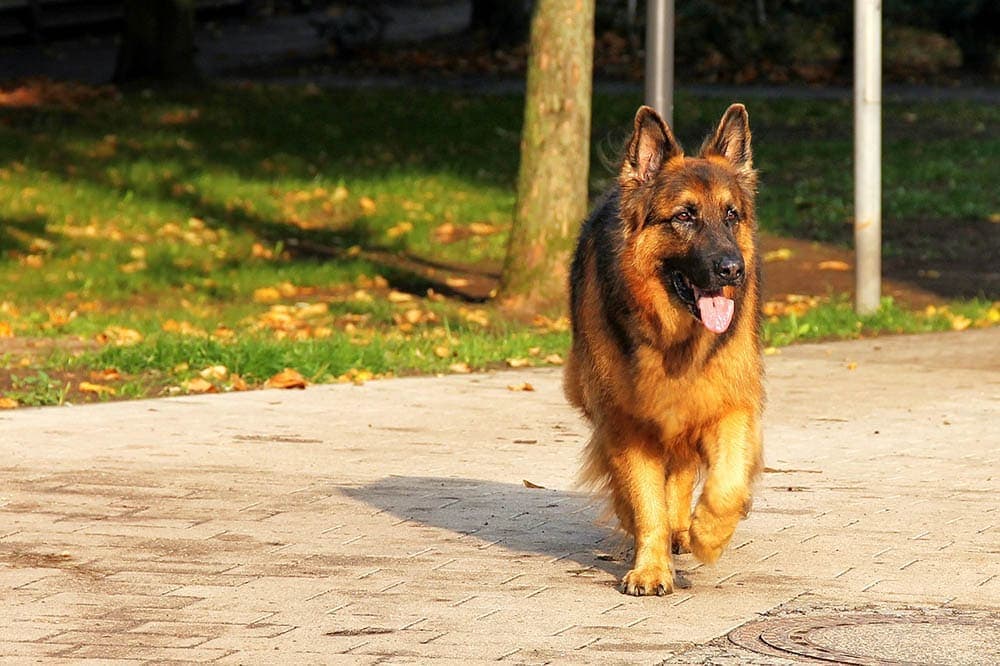
2. They’re Suffering From Heatstroke
While heatstroke ties into the “being too hot” aspect of panting, it’s serious enough that it should be talked about separately. Heatstroke occurs when your pet has been active in extremely hot temperatures and can happen to any dog breed, but due to their thick coats and large size, German Shepherds are at greater risk.
How can you tell if your dog is suffering from heatstroke? The first sign you’ll likely notice is your dog panting for far longer than is typical after being out in the heat. Other signs of heatstroke can include lethargy, thick, sticky saliva, vomiting, and a bright red tongue. If you notice any of these, take your pet to a cooler, shaded area and give them water. After they’ve cooled off a bit, follow up by taking them to the vet.
3. They Just Finished Being Active
German Shepherds have a lot of energy; they typically require at least 2 hours of exercise a day. If you notice excessive panting after taking them for a long walk or playing a half-hour of fetch in the backyard, it’s most likely not cause for alarm. It’s just your dog trying to get more oxygen to its muscles. However, if this panting lasts for a longer amount of time than is normal, you may want to speak to your vet. Likewise, if your dog is panting more even after short bursts of activity, it may be a sign that something is wrong.
4. German Shepherd Excited Panting
Maybe your German Shepherd is meeting a new person and is happy to have made a new friend. Perhaps you’ve been gone for days (or just to the grocery store for an hour), and they’re thrilled you’re back. Whatever the case, when German Shepherds get excited, they’re prone to panting more. Why? All that jumping and wriggling counts as activity, and they need to get more oxygen to their muscles.
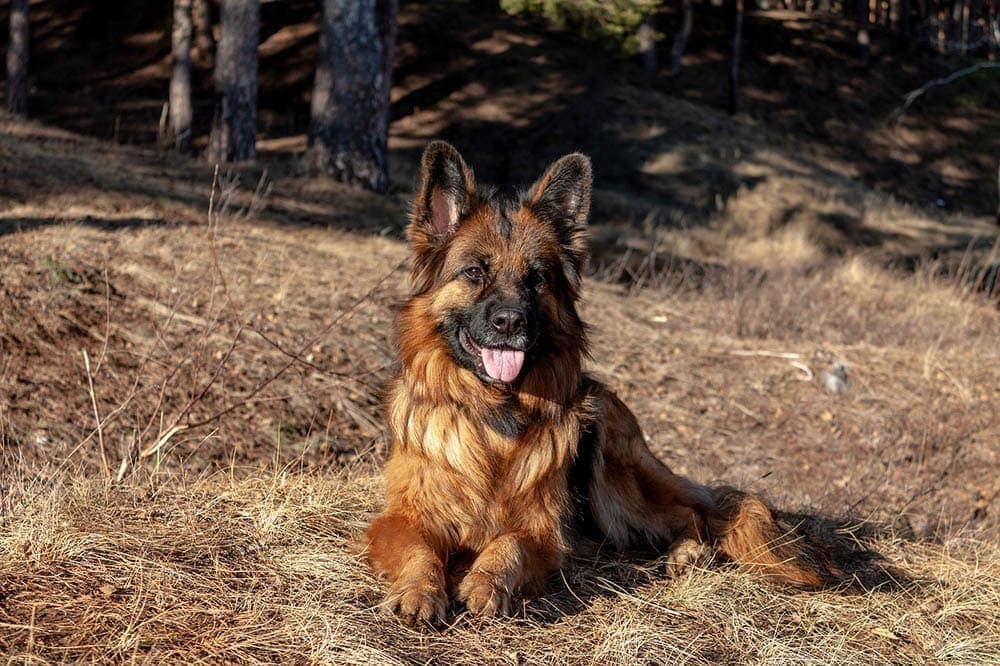
5. They’re Stressed, Anxious, or Afraid
German Shepherds are a brilliant breed. As a result, they are more aware of their surroundings and owners’ emotions, which can lead them to become stressed or anxious. If your dog has become stressed, they may be panting more than usual. Unfortunately, it can be difficult to figure out what is making your pup anxious. Sometimes it’s a matter of a new home or new people. Other times, they could be reacting to your emotions. German Shepherds also tend to suffer from separation anxiety, so if they’re in a different room than yourself, you may hear an increase in panting.
Fear can also cause more panting. If you notice a lot of panting when they hear loud noises or when they’re around a specific person, there’s a good chance it’s fear-related.
6. They’re Having an Allergic Reaction
Dogs can have allergies too! While they may end up with digestive issues or reddened skin because of them, your German Shepherd may also start panting in a wheezing manner. Their allergies range from dietary-related, pollen-related, laundry detergents, and dust. If your pet starts panting and wheezing out of nowhere, check what they’ve eaten recently or where they’ve been hanging out to discover if it could be an allergic reaction. Other signs of a reaction include itchiness and paw chewing.
7. They’re in Pain
Dogs can’t tell us when they’re not feeling well; we must figure it out by their behavior. One sign of pain in German Shepherds can be panting without the catalyst of exercise or excitement. If you notice this along with other signs of potential illness, get them to a vet right away.
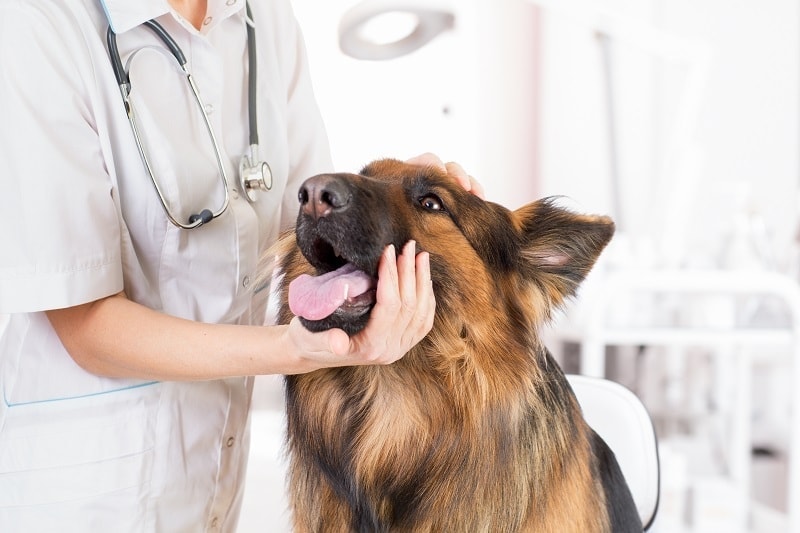
8. They Have Heart Problems
While this reason is much less likely than others, it’s good to know. Heart disease can manifest signs such as the onset of excessive panting. If your German Shepherd has suddenly had an increase of constant panting that came out of nowhere, it’s time to head to the vet. Other signs of heart problems include a swollen belly, loss of appetite, and paler gums than usual.
German Shepherd Normal vs. Abnormal Panting
Since German Shepherds do pant more than other breeds, how can you tell whether yours is panting an average amount or not? Mostly, you’ll need to look at what they’ve recently been doing and where they are. If your dog has been running about or has been outside in the heat, short amounts of panting are normal. If they’re excited or scared about something, you’ll notice them panting. If you notice lots of panting but your pet is otherwise behaving normally, it shouldn’t be cause for concern.
Panting that’s outside of the norm will be panting more often, panting for longer than usual, panting for no discernible reason, or panting that’s non-stop. Again, look where your dog has been and what they’ve been doing to ascertain if they are having an allergic reaction, are anxious, or might be ill. Other signs to look for to tell whether your pet is alright are the temperature (panting more in hot weather is expected), lethargy, extreme thirst, and hair loss. Another thing to check is your German Shepherd’s gums. If the gums are paler than normal or a blueish color, it could be they aren’t getting enough oxygen.
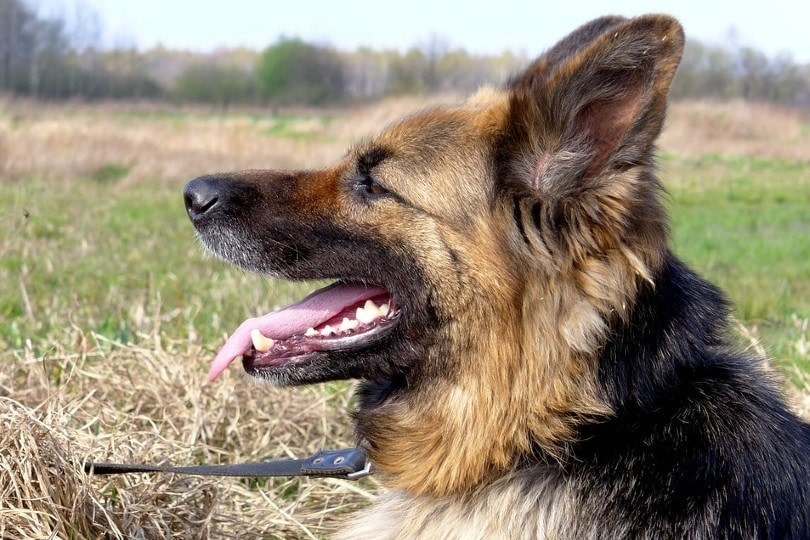
What to Do About Panting
Panting is a part of dog life, especially in our German Shepherd friends, but there are some things that can reduce the amount of panting they do.
When German Shepherds Are Too Hot
Since the most likely cause of your German Shepherd’s panting is an attempt to cool down, you can help by making sure they have plenty of shaded areas available, access to lots of water, and are never left on their own without these when it’s hot. By doing these things, you’re also helping reduce the risk of heatstroke.
Another good way to help your pup stay cool is by removing their undercoat with a deshedding brush. This technique is particularly beneficial during the summer months.
When They’re Anxious, Scared, or Hurting
If your dog is panting a lot without a reason, they might just be anxious, scared, or not feeling well. If it seems this is the case, try offering them some comfort. By giving them your company and some good pets, you may distract them from whatever is bothering them, helping their breathing return to normal.
When They Seem Like They’re Having a Reaction
If you suspect your dog has consumed or encountered something that’s caused an allergic reaction, check their environment. See if they’ve gotten their paws on food they shouldn’t have or if there’s more pollen than usual outside or if they could’ve touched something harmful. This can help you figure out if it is indeed a reaction and whether you need to go to the vet.
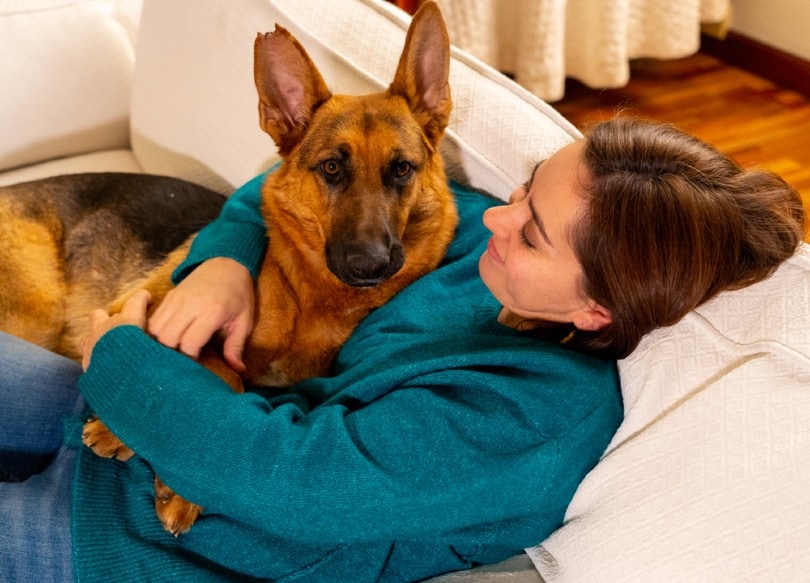
Final Thoughts
As you can see, panting a lot is typical of German Shepherds and can be due to a variety of factors. The most likely reason your pet is panting so much is because it’s hot and trying to cool down. Other common causes can be excitement, fear, anxiety, heatstroke, heart problems, or illness in general.
The main thing you should know is how to differentiate between normal and abnormal amounts of panting by examining their recent activity and surroundings. The majority of the time nothing will be wrong, but it’s essential to keep an eye on your dog in case they do need to visit a vet.
Featured Image Credit: Pixabay


